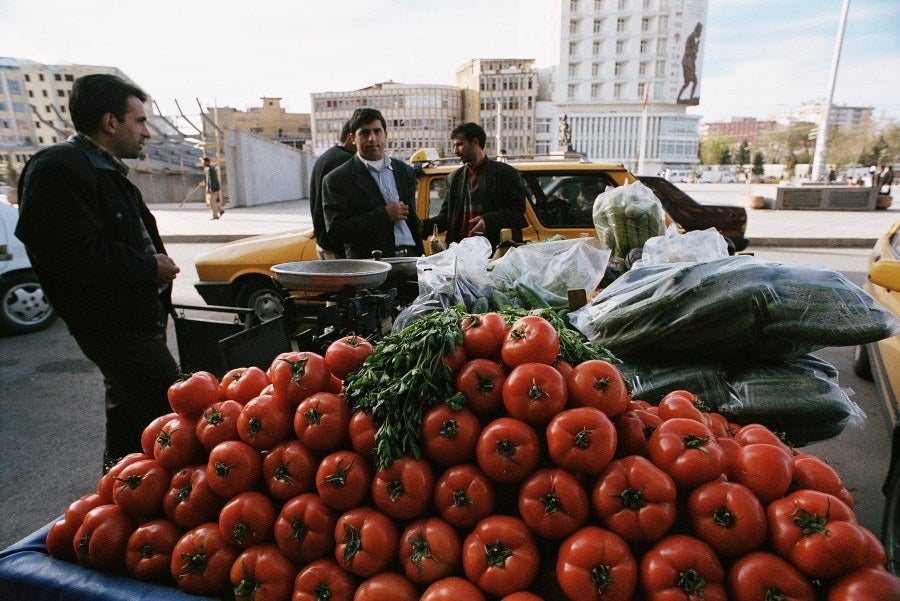This blog is part of the ‘S4YE – Insights from the Private Sector’ webinar series - an ongoing web series that facilitates dialogue between youth employment practitioners and private sector companies around the world. The webinar series especially highlights lessons from youth-focused initiatives that are being led by the private sector. This is an opportunity for the community to connect, learn from each other, and share experiences.
The next blog in the series will talk about private sector led solutions for designing effective work-based learning programs.
Conventional wisdom tells us that young people are fleeing agriculture to seek opportunities in urban centers. While that is largely true, agriculture remains a primary source of employment for youth in many developing countries. Studies show that the absolute number of young African farmers is expected to rise in the coming decades. Given the sector’s critical role in job creation, development experts are seeking solutions to make agriculture more lucrative and attract the young talent needed to feed the world’s growing population.
The private sector has led the way in professionalizing the value chain for young farmers. Solutions For Youth Employment (S4YE) recently organized a webinar to highlight examples of how the International Finance Corporation (IFC) and Nestlé are creating exciting opportunities for young farmers. Here are three takeaways on how to stimulate agri-preneurship:
1 - Guaranteed Access to Markets: The lack of reliable access to markets is a major barrier to viable opportunities in agriculture, and a potential deterrent for future agri-preneurs. Twiga Foods, in Kenya, has found an interesting solution to address this gap. They use a digital mobile phone platform to provide guaranteed market access to small-scale farmers by connecting them to local vendors. The digital marketplace ensures that transactions are cashless, pricing is transparent, and unsold produce is minimized. Twiga, which received support from IFC and the Global Agriculture and Food Security Program (GAFSP)’s Private Sector Window, sources from more than 17,000 producers —and farmers receive digital payments in less than 48 hours.
Similarly, Nestlé’s Farmer Connect program provides guaranteed access to markets to agri-preneurs for primary raw materials and facilitates access for secondary raw materials through third parties. In 2018, Nestlé sourced from more than 700,000 farmers directly and facilitated access to secondary raw materials to 19,000 farmers.
2 - Institutional training and support: Many young farmers don’t have up-to-date knowledge and skills on farming best practices. Studies find that many also have no formal training and that agriculture is not their preferred career choice. Private sector companies can play a key role in training and professionalizing the sector.
One example is Nestlé’s dairy farming institute in China. The institute offers theoretical and practical vocational training to budding dairy professionals, and has trained 9,000 students between 2014-18. The training curriculum includes modern dairy management practices in animal health, milking hygiene, environmental protection, and socioeconomic management. Another example is the Cargill Coop Academy, an educational program for cocoa cooperative managers in Côte d’Ivoire that attendees describe as a cross between a mini-MBA and an organizational boot camp. The academy, which is supported by IFC and GAFSP through an advisory services project in partnership with Cargill, has reached an estimated 52,000 farmers since it was launched in 2013, training over 850 cooperative leaders in digital finance, sustainability, and navigating commercial credit systems, while increasing traceability and security.
3 - Access to finance: A major barrier to young agri-preneurs and farmers is the lack of access to finance. Financial institutions hesitate to lend to young farmers due to perceived risks and lack of collateral. But the private sector can mobilize finance in agriculture using innovative solutions such as blended finance. For example, IFC and the GAFSP Private Sector Window are providing a blended finance package to Agency for Finance in Kosovo (AFK), a microfinance institution, to spur lending to farmers and develop Kosovo’s agriculture sector. IFC will advise AFK as it develops lending tools to extend financing to more agricultural firms, and support AFK as it rolls out training sessions to help farmers understand financial instruments and better present their business plans to creditors.
As we continue to search for creative solutions to address youth unemployment, the private sector is emerging as a critical partner in creating a thriving agricultural ecosystem. Empowering young farmers and agri-preneurs creates a sustainable agriculture value chain leading to a win-win situation for both farmers and the private sector: Farmers benefit from easier access to finance, stronger market linkages, and higher incomes, while the private sector benefits from better quality yields, increased trade volumes, and a stable supply. Leveraging the private sector through multi-stakeholder partnerships and effective business models will be critical in our collective effort to address youth unemployment, reduce extreme poverty, and promote food security.
S4YE is a multi-stakeholder coalition that aims to provide leadership and resources for catalytic action to increase the number of young people engaged in productive work. S4YE’s members include the World Bank Group, Accenture, The Rockefeller Foundation, Mastercard Foundation, Microsoft, Plan International, International Youth Foundation (IYF), Youth Business International (YBI), RAND Corporation, the International Labour Organization (ILO), the Governments of Norway and Germany, and the UN Envoy for Youth. The S4YE Secretariat is housed in the Jobs Group within the Social Protection and Jobs Global Practice at the World Bank Group.





Join the Conversation